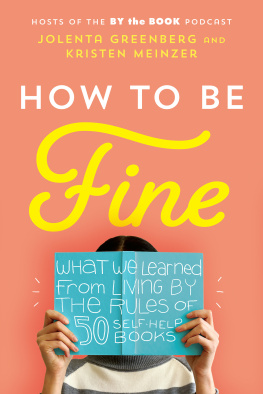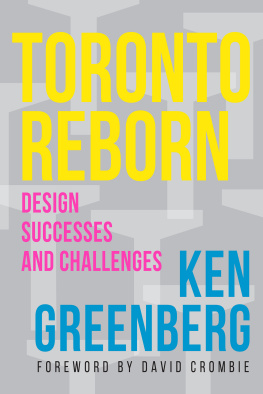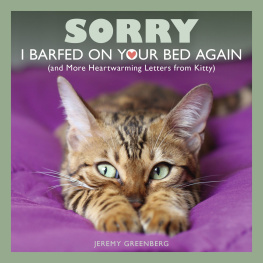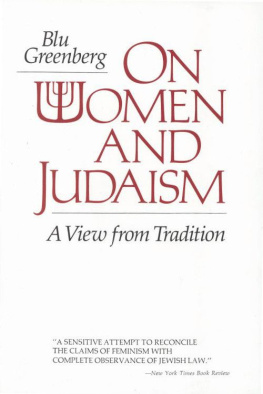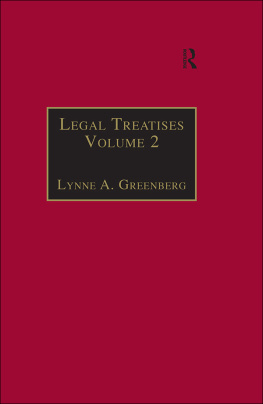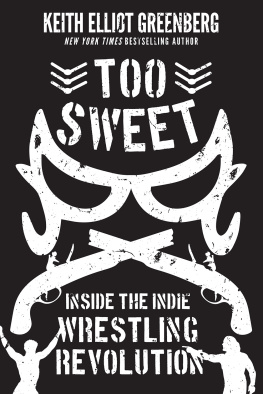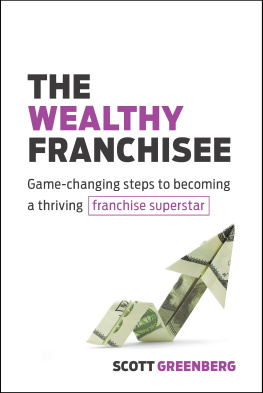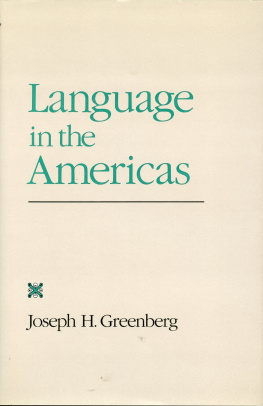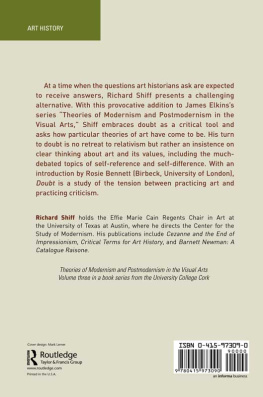Jolenta Greenberg - How to Be Fine
Here you can read online Jolenta Greenberg - How to Be Fine full text of the book (entire story) in english for free. Download pdf and epub, get meaning, cover and reviews about this ebook. year: 2020, publisher: HarperCollins, genre: Home and family. Description of the work, (preface) as well as reviews are available. Best literature library LitArk.com created for fans of good reading and offers a wide selection of genres:
Romance novel
Science fiction
Adventure
Detective
Science
History
Home and family
Prose
Art
Politics
Computer
Non-fiction
Religion
Business
Children
Humor
Choose a favorite category and find really read worthwhile books. Enjoy immersion in the world of imagination, feel the emotions of the characters or learn something new for yourself, make an fascinating discovery.
- Book:How to Be Fine
- Author:
- Publisher:HarperCollins
- Genre:
- Year:2020
- Rating:4 / 5
- Favourites:Add to favourites
- Your mark:
- 80
- 1
- 2
- 3
- 4
- 5
How to Be Fine: summary, description and annotation
We offer to read an annotation, description, summary or preface (depends on what the author of the book "How to Be Fine" wrote himself). If you haven't found the necessary information about the book — write in the comments, we will try to find it.
How to Be Fine — read online for free the complete book (whole text) full work
Below is the text of the book, divided by pages. System saving the place of the last page read, allows you to conveniently read the book "How to Be Fine" online for free, without having to search again every time where you left off. Put a bookmark, and you can go to the page where you finished reading at any time.
Font size:
Interval:
Bookmark:
For our listeners and our husbands
I dont like to give advice. I like to give people information because everyones life is different, and everyones journey is different.
Dolly Parton
Halfway through day two, I was crying because I ate two pickle slices and a leaf of lettuce. I knew I was cheating, and I felt horrible about myself. According to the rules of the book I was living by, I was supposed to consume only boiled leeks or the water that came off of boiled leeks, and I was failing. This was all happening just a week after I threw out half my earthly possessions and three weeks after I moved traffic with my mind.
I was living by a diet book called French Women Dont Get Fat. The week before, I was living by The Life-Changing Magic of Tidying Up. Three weeks earlier, I was living by The Secret. This was my life. Every two weeks, I lived by a different self-help book, following all the rules down to the letter: eating what the books said to eat; talking as the books said to talk; waking, sleeping, decorating, and interacting with my husband according to each books doctrine. And I was recording it all for a reality-show podcast called By the Book.
The person who roped me into this life was my brilliant and hilarious friend Jolenta Greenberg. Jolenta is a comedian, storyteller, voice actor, teacher, and self-help enthusiast. She is a woman who loves crystals and talks earnestly about chakras and truly wants to believe the promises that self-help books routinely shill. The reason she asked me to cohost By the Book with her was that my views were exactly the opposite.
I thought it would be good for a laugh. We would have fun. We would be ridiculous. We would make an entertaining show.
Little did I know that all these books would actually change my lifesometimes even for the better. If not for By the Book, I never would have penned that Amish romance novel Id always joked about writing. I never would have traveled back to my past lives. And Im not sure I would have had some of the difficult conversations Ive had with my husband about our marriage.
By the Book started off as a wacky experiment, but over the course of its life, its come to be something much biggerand not just for us. We have a Facebook community of more than fifteen thousand people from around the world who talk with one another every day about topics that range from workplace drama to alcohol abuse. Weve headlined live events for the likes of The New York Times and given interviews to NPR, the BBC, the CBC, and even RNZ (thats Radio New Zealand). And weve been written up by The Guardian, TheWashington Post, Time, Bust, BuzzFeed, IndieWire, and the librarians of Lawrence, Kansas.
But despite all our appearances, interviews, episodes, and Facebook community, listeners still want to know more. Why dont you two write a self-help book sharing what youve learned from living by all these books? were often asked.
And so, weve written this book. Obviously, we hope it satisfies our existing audience. But our dream is that it also speaks to people whove never heard of uspeople who just want to know what two very honest women have to say about how their lives have been upended and improved by methodically following the advice of fifty self-help books in three years.
Note: Our goal is not to tell you how to live your lives. In the grand scheme of things, were not what you would call experts. Were not psychologists or doctors. And we honestly dont believe we know more than you do about how to be the best version of yourself. As Jolenta often says, Only you are an expert in you.
Were really just here to share our story, and to talk about whats worked for us and what hasnt. And for what its worth, those things dont include mushy missives like Empower your heart. Yes, mush can be inspiring and fun. But it can also be hard to actually put into practice.
Thus, well be talking only about concrete steps weve taken. That means things you can try at home if thats really and truly what you want to do. But if you just want to laugh or shake your head as we recount how weve tortured ourselves in the name of betterment, thats also fine by us.
You do you, and well do us.
When I was a tender, mouth-breathing five-year-old, I started kindergarten. On my first day I brought with me a box of tissues. Each kindergartener was tasked with bringing in a box of tissues on the first day, and the boxes were supposed to live in our cubbies and be at our disposal for all our snot needs throughout the year.
Come pickup time on my first day, my mother and my kindergarten teacher, Mrs. Marshall, watched in confusion as my tiny hands struggled to jam my tissue box back in my little neon pink backpack. I was clearly planning on taking my tissues home while all around me, my classmates were leaving their tissues in their cubbies without giving them a second thought.
You can leave those in your cubby, Mrs. Marshall explained. Theyll be safe here and waiting for you every day.
Yeah, right, I thought. Im not gonna leave my stuff in a strange room all night! Not on my watch!
I kept packing up and responded with a meek Im okay as I zipped up my bag and indicated I was ready to hit the road by pulling on my moms coat.
Mrs. Marshall and my mom exchanged amused glances and through muffled laughter concluded that Id leave my tissues at school once I felt ready.
This ritual continued every day. Every morning Id unpack my tissue box, lovingly leaving it in my cubby, and every afternoon Id pack my tissues up and take them home for the night, while my mom and teacher chuckled and reminded me I was free to leave them at school permanently. When I was ready.
And boom, one day after two weeks it happened. I was ready. I had sussed out the situation, figured out the rules for myself, and decided it was finally time to trust in the system.
This is one of my moms favorite stories about me, because it perfectly encapsulates my idiosyncrasies. Im always two weeks behind. Im always catching up on life. Im always just a few beats behind all of lifes prescribed normal milestones, getting to them a bit later than everyone else. Whether its getting comfortable leaving my tissues at school, having my first kiss, falling in love, getting a real job... Im always running behind.
My proclivity for being two weeks behind in life has followed me for the past thirty-odd years, and its why I became obsessed with self-help. During my teenage years I discovered that tons of people have written all sorts of rule books about how to live! I knew if I could read them all and implement all their rules, I could catch up to everyone else and finally stop worrying about being behind in life.
As an adult I dabbled in self-help, reading the occasional book and watching the occasional inspirational Internet video. But when one of my four part-time jobs landed me in a newsroom at a radio station, things got real. I was in charge of going through all the books sent to the show I worked on, and we got sent many self-help books that no one wanted... except me. I wanted them all.
Each new self-help book Id open was a beautifully bound bundle of promisesof happiness, productivity, success, all things I desperately wanted. Each book I opened was basically saying, Come on, Jolenta, Ill fix you. You dont want to be two weeks behind forever, do you!?!
No! I did not. So I took all the books, called my friend and coworker Kristen, and told her we were going to start a project for which wed strictly live by the rules of the different self-help books Id been collecting.
Kristen is the kind of friend who is so on top of her life that its infuriating. Shes the anti-me. Shes the friend you go to when you need advice on all things adult. Whether you have questions about real estate lawyers or how to deal with estranged family members, Kristen has your answer. She doesnt need fixing, like me, and thats why I knew shed be my perfect self-help partner. Shed keep me accountable and serve as a sort of control group, since she was the one who wasnt perpetually trying to catch up. If the books could enhance both of our lives, they worked for real.
Font size:
Interval:
Bookmark:
Similar books «How to Be Fine»
Look at similar books to How to Be Fine. We have selected literature similar in name and meaning in the hope of providing readers with more options to find new, interesting, not yet read works.
Discussion, reviews of the book How to Be Fine and just readers' own opinions. Leave your comments, write what you think about the work, its meaning or the main characters. Specify what exactly you liked and what you didn't like, and why you think so.

